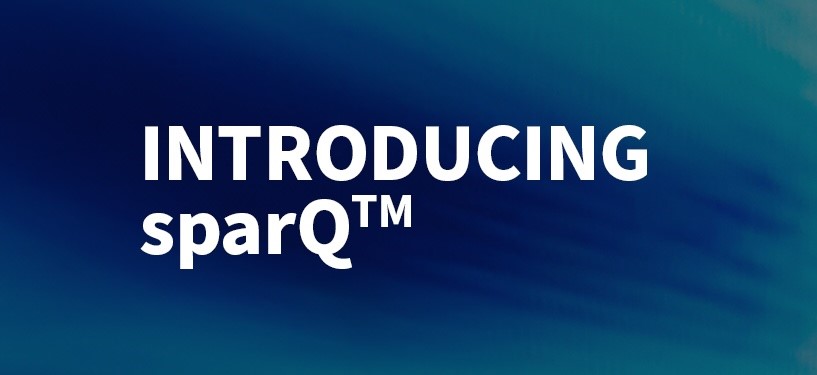I have been a recruiter for 6 years, 52,560 hours, and have seen over 115,000 resumes. I have a deep, dark secret to share: Contrary to popular belief, as a recruiter, I don’t love resumes.
I have read the most outstanding resumes only to meet the individual in person and wondered, “I thought you would be more of an expert in this space based off of what you had written.” I have also met really great candidates who had less polished resumes and found them to have leadership abilities and technical capabilities that were aligned perfectly for the position.
I started to believe that you cannot judge a candidate by their resume. But, every company I have worked for still uses the resume as a gatekeeper. I started to wonder why did we start using the resume in the first place. Where did it come from?
Do you know who wrote the first resume? The first edition of the resume started almost 450 years ago, in the form of a letter from one person to potential employer. The letter was from Leonardo Da Vinci to a potential new employer, the Duke of Milan. His resume didn’t boast quarterly metrics, or annual revenue growth, or the number of paying customers he worked with in a month. His resume talked how he would perform in a given situation. It talked more about how he thinks and would react in stressful moments.
That’s why, at the Tech Connection, we believe in emotional intelligence (EI) based hiring. I believe that self-awareness, empathy, team work, confidence are more valuable qualities than expertise.
Our emotional intelligence tells us a lot about who we are and how we might respond. The reality is that technology is impacting our workforce in ways we have never anticipated. Matching resumes to job descriptions will not cut it. What we write in the job description today may not be what the role will be like in 3-4 months when we actually make that first hire. A Company’s direction and focus change all the time. So, we have to be able to hire people who can adapt to change. It is now time for us to be as innovative about our hiring practices as we are about the technologies we create. It’s not only about where you have been or what you have done but how you respond to our ever-changing world.
Our new world requires critical thinking, problem solving, and creativity. The resume does not display how we think or how we would perform. Instead, we will use what we call ICM reports — Insightful Candidate Matching reports — to better align workers to jobs that are suited to their EI to help people build meaningful careers.
I remember in the 2016, when I came across a candidate who had migrated here from Dominican Republic. He spoke no English, but came here with the hope and dream that he could build a meaningful career in the U.S. He worked tirelessly as a dishwasher to make ends meet during the day, and then would come home at night and tinker with technology and help his little cousins fix their broken gadgets.
Then finally one day someone said to him, you are always tinkering with technology. Why don’t you learn more about how computers work? He thought to himself. That’s a good idea, I should practice my English so I can go to school. He got Rosetta Stone and as he traveled to and from work he started to learn English. As he felt more confident in his English he started to apply to schools. But then he realized, school was expensive and at $30,000 a year he thought, well if I just get my certificate this should do the trick. So, he completed his certification and started looking for a new job.
English was his second language. The resume of a dishwasher. No college degree. No one wanted to hire him. After six months of endlessly applying to jobs, he gave up on his job search and thought maybe he should go back to school to get his associate’s degree. He finished his associates, this time with a 3.5 GPA. No IT experience. Still working as a dishwasher. By any means, a recruiter would have looked past him.
His ICM report showed that he valued being organized, he liked helping people follow instructions, he was a planner and thinks deeply about how to help people accomplish their goals in a timely and efficient manner. His life experiences showed that he had perseverance, grit, and hustle. We aligned him with a job in IT Support at Carbonite. No previous experience. No metrics on impact. This candidate has performed above and beyond in his role. His resume could not communicate that this to the employer but the ICM report did. He’s been there for 4 months and is killing it in his job.
Resumes can’t capture the whole candidate, and even the best recruiters and hiring managers with the best intention can let a great person walk right by. But, our personality tells us who we are and what we are capable of. It’s stronger than a resume, it’s strong than text book. It can pull us towards job opportunities that help us create meaningful careers.
I believe that our future depends on how we can be smarter about designing careers we love and, to address the infamous skills gap, we will have to adapt to the challenges that we see. We have to work with the talent that we have, and see them for who they are, and align them to opportunities that make sense for them.
This future of work cannot be captured by buzzwords, professional resume writers, or current job boards.
This post is an adaptation from a HubWeek talk delivered by Melissa James, President, Founder & CEO of the Tech Connection, Inc.



